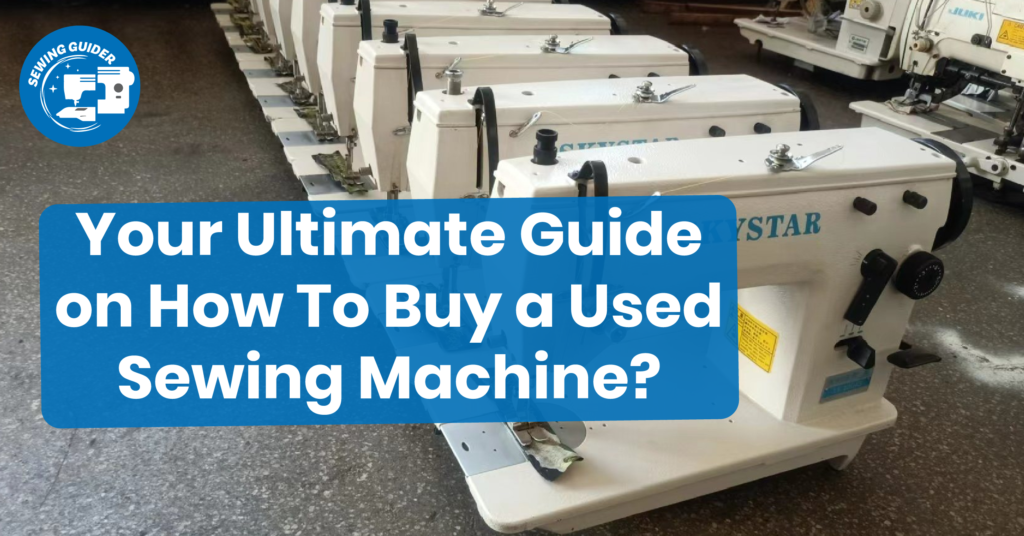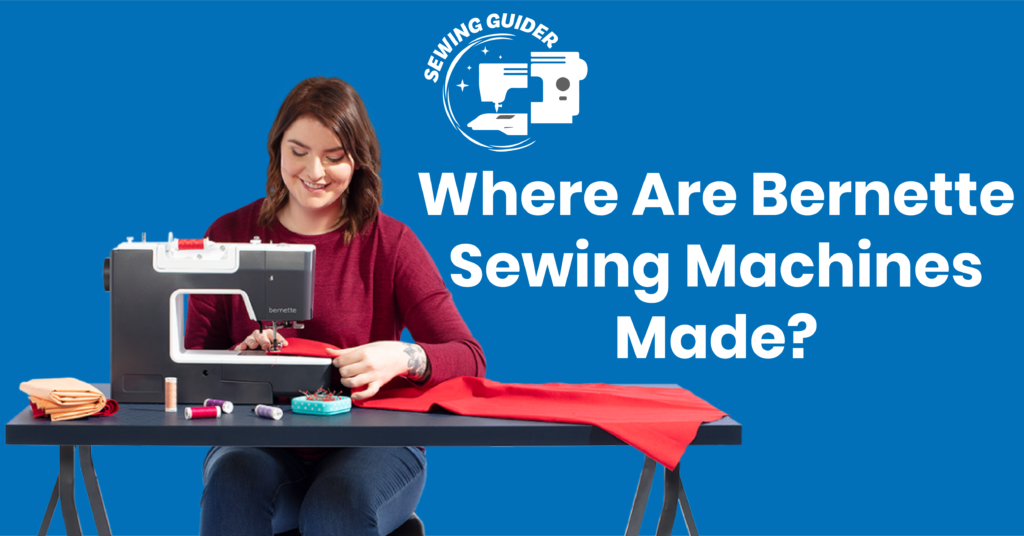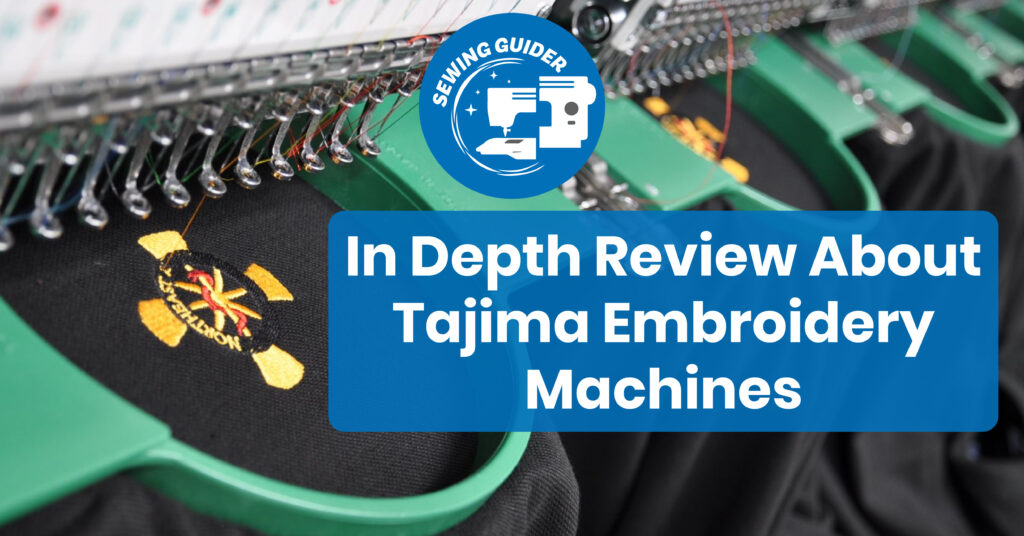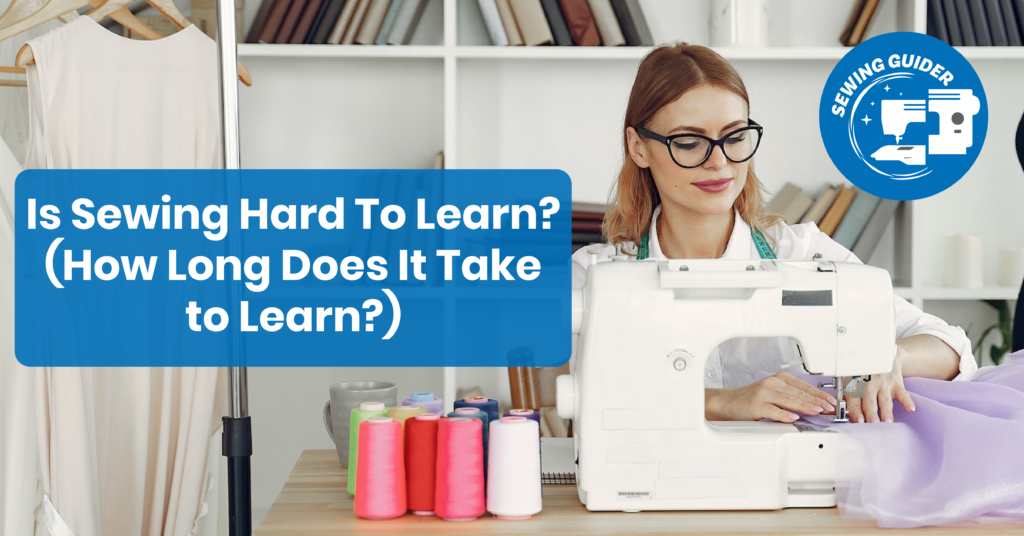Do you want to learn how to buy a used sewing machine? You don’t have to worry because buying a used machine is an innovative and cost-effective way to start your creative journey. The process can seem overwhelming, mainly if you are a novice. This comprehensive guide will walk you through all the steps to buy a used sewing machine. We’ll ensure you make an educated decision that fits your budget and needs.
What to consider before buying a used sewing machine?
You’re about to purchase a used machine for your creative endeavors. This can be a fun and exciting project. Still, it is essential to take the time to consider your options carefully. Before making a decision, consider these critical factors:
Understanding your needs requires research:
Knowing your sewing needs is essential before searching for a used machine. You may be a beginner who wants to learn the basics or an advanced sewist looking for more features. Different devices are designed to meet the needs of varying skill levels. List the features that are important to you, such as automatic threading or stitch patterns.
Budget your expenses:
Saving money is one of the main reasons to buy a used machine. Setting a budget allows you to narrow down your choices and avoid overspending. You can research the market for an idea of what used sewing machines are priced at with the required features. Be sure to allow for unexpected costs such as maintenance or accessories.
Wanted Features:
List the features that you need in a machine. Consider factors like stitch number, automatic threading, and specific stitch patterns. Choose a machine to suit your needs, whether a novice or an experienced sewer.
Check everything:
It is essential to inspect the machine yourself to get your money’s value. What to look for
- Physical Condition: Check the machine for wear, corrosion, or damage signs. Make sure that all parts are in good condition.
- Stitch quality: Ask the seller for a demonstration of the machine’s capabilities. Needs to be checked, or skipped stitching could indicate a problem.
- Mechanical problems: Listen for unusual noises when you turn on the machine. Excessive noises could indicate mechanical problems.
- Accessories: Verify that the machine has all its original accessories. These include presser feet and bobbins. You may pay more later if you don’t have the accessories.
Search for the brand and model:
Research the brand and model before making a final decision. You can get insights from other users by reading reviews and forums. This can help you identify potential problems, joint issues, and the overall reputation of the machine.
Test Drive the Machine:
Request to test-drive the machine if possible. You will get a better feel for the performance and comfort of the device by testing it out. Take note of the ease with which you can thread the machine and adjust the stitch settings and the user interface.
Machine Condition Inspection:
Be sure to inspect the physical condition of your sewing machine before making a decision. Be on the lookout for any signs of wear or rust. Ask for a stitching demonstration to make sure it produces consistent and even stitches.
Source and Reputation:
When buying a used machine, choose a reliable seller. The best options are reputable sewing machine dealers, online marketplaces, or local sewing clubs. When dealing with private sellers, be cautious and gather as much information about them as possible.
Repair and Warranty:
Ask about the history of repairs and whether a warranty or guarantee is offered. You should research local services that repair sewing machines and their prices to prepare for any repairs.
Ask questions and negotiate:
Negotiate the price if there are any defects or if an accessory is missing. Ask the seller for information about the history of the machine, its maintenance, and the reason it is being sold. A machine that has a clear record and is well-maintained will serve you better.
Compatibility of Projects:
Consider the type of project you will be working on. Ensure the machine you select is compatible with the materials and techniques you plan to use. A machine with adjustable settings is versatile and can be used for various projects.
Longevity of the product and its resale value:
Assess the sewing machine’s potential resale price and its longevity. Invest in a machine that has a high resale price. Your investment will remain valuable even if, in the future, you decide to upgrade.
Find out the benefits of buying a used sewing machine
- Even experienced sewers may need help finding a suitable machine for their needs.
- Although buying a new machine may be appealing, it could be expensive. Investing in used machines is an inexpensive alternative to purchasing a new sewing machine.
- It’s vital to be cautious when exploring the options. Before shopping, make sure the machine you are considering is in good working order.
- You can save money if you are a skilled seamstress. This decision relieves financial stress and allows you to try out different brands.
Conclusion
How do you buy a used sewing machine? A used sewing machine is a great way to start your sewing adventure. It’s also a budget-friendly option. You’ll have a better chance of finding a machine that suits your creative needs if you follow the above steps. Patience and research can help you find a great sewing machine to realize your creative visions. Happy sewing!
Frequently Asked Questions
Is Buying a Used Sewing Machine a Good Idea for Beginners?
Absolutely! Buying a used sewing machine can be an excellent idea for beginners. It allows you to learn the basics without investing a significant amount upfront. Ensure you choose a machine that suits your skill level and project requirements.
How Do I Determine the Proper Budget for a Used Sewing Machine?
Research the market to understand the price range for the features you need. Remember that while saving money by buying used, setting a reasonable budget ensures you’re still getting a quality machine.
Where Can I Find Used Sewing Machines for Sale?
You can find used sewing machines at reputable sources such as sewing machine dealers, online marketplaces (like eBay or Craigslist), thrift stores, and local sewing clubs. Ensure you research the source and ask questions before making a purchase.
What Should I Look for During the Inspection?
Pay attention to the physical condition of the machine, stitch quality, noise level, and the availability of accessories. Look for signs of wear, rust, or damage, and ask the seller to demonstrate the machine’s stitching capabilities.
Should I Test the Sewing Machine Before Buying It?
Yes, request to test drive the sewing machine. This hands-on experience lets you get a feel for how the machine operates and if it’s comfortable for you.
Are Certain Sewing Machine Brands Better for Buying Used?
Some well-known sewing machine brands have a reputation for durability and reliability, even in their used models. Research brands like Brother, Singer, Janome, and Pfaff, among others, for a higher likelihood of finding a quality used machine.
Can I Negotiate the Price of a Used Sewing Machine?
Absolutely. Feel free to negotiate the price, especially if you notice any issues with the machine or missing accessories. Polite negotiation can often lead to a better deal.
What if the Used Sewing Machine Needs Repairs?
Ask the seller about the machine’s repair history and if they offer any warranty or guarantee. Additionally, research local sewing machine repair services and their costs to prepare you for repairs.
Are Older Sewing Machines a Good Choice for Beginners?
Older sewing machines, often made of metal and known for their durability, can be an excellent choice for beginners. They might lack some advanced features, but they can be reliable workhorses for basic sewing tasks.
Should I Buy From an Individual Seller or a Dealer?
Both options have pros and cons. Dealers may offer warranties and a level of trust, but individual sellers might provide better deals. Regardless of the source, thoroughly inspect the machine and ask questions before purchasing.
Can I Return a Used Sewing Machine if I’m Not Satisfied?
It depends on the seller’s return policy. Some sellers offer a limited return period or no returns for used items. Clarify the return policy before making a purchase.




